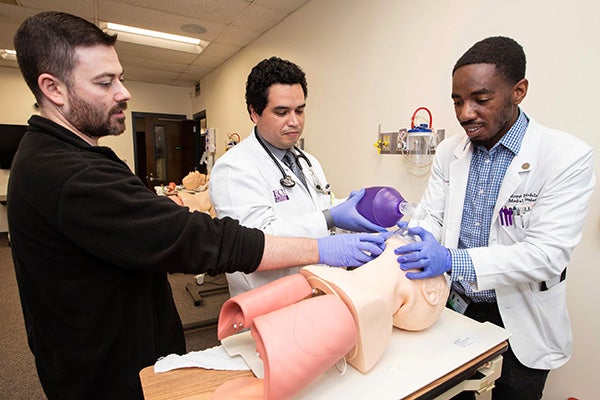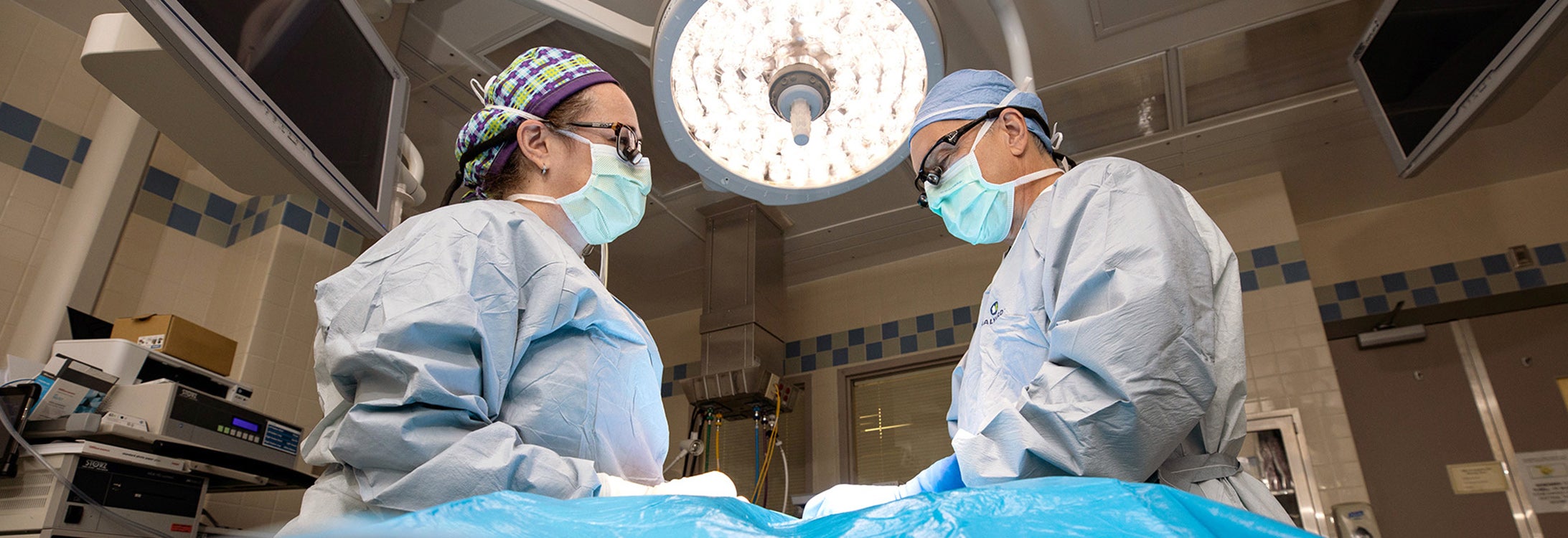PHYSICIAN STRESS
Holiday season yet another stressor for physicians in danger of burnout
During the holiday season, many physicians will see an influx of patient visits and heightened stress due to various reasons, including the flu season entering its peak and patients rushing to schedule appointments before their insurance deductible resets at the end of the calendar year.
“Physicians face increased stress during the holiday season because they are trying to take care of as many patients as they can while also trying to spend time with their loved ones, and they’re trying their best to balance that during an especially busy time of year,” said Dr. Rochelle Asagbra, a clinical assistant professor in the Department of Emergency Medicine at ECU’s Brody School of Medicine.
This holiday stress compounds the already heightened stress issues faced by the physicians of today.
According to a 2018 Harvard University report, physician burnout is a “public health crisis that urgently demands action by health care institutions, governing bodies, and regulatory authorities.”
The “National Physician Burnout, Depression & Suicide Report 2019” – a survey of 15,000 physicians from 29 specialties conducted by the Medscape medical news website – found an overall physician burnout rate of 44 percent, with 15 percent saying they experienced colloquial or clinical forms of depression.
“It’s been more concerning topic in last several years, because physicians are facing additional stress in workplace and also at home,” Asagbra said. “Where previous generations were expected to be in the hospital for long hours at a time, we are kind of moving into a generation where we’re trying to have this elusive work/life balance – where you can still give your all at your job, but you are still present at home.”
The day-to-day administrative duties required of modern physicians – such as the use of electronic medical records (EMRs) – add to the stress of the job itself, Asabra added.
“Physicians not only have the stress to provide for our families, we have our patients’ lives in our hands,” she said. “If we make mistakes, there are huge consequences.”

The Brody School of Medicine has invested in programs to equip medical students with tools that can assist in curbing stress.
Asabra recommended that physicians try to shake up stressful routines during the holidays with things like staff gatherings, but also said simply having the appropriate amount of staff on hand during the anticipated busier shifts can also go a long way to reduce stress.
However, she said it’s still often up to the provider “to understand that the holidays are going to be more stressful and to prepare for it – by doing things like scheduling some time for themselves in advance – instead of waiting until their stress reaches the point of burnout.”
Wellness topics and initiatives are incorporated throughout the curriculum of the Brody School of Medicine, in an attempt to equip medical students with tools that can assist in curbing stress before they even enter residency.
About a year ago, the medical school purchased the Medical Student Well-Being Index, which was invented by the Mayo Clinic and evaluates fatigue, depression, burnout, anxiety/stress, and mental/physical quality of life in medical students. The program is administered to Brody students at different points of time throughout the curriculum.
“We believe that by providing students with an opportunity to be able to measure their stress and where they are in regard to burnout, then students would be empowered to go and seek help,” said Dr. Sandy Acheampong, interim assistant dean for Student Development and Academic Counseling at ECU’s Brody School of Medicine, adding that students who show high levels of stress, burnout or emotional exhausted are immediately provided a list of resources available at ECU that can help them deal with that stress.
Brody students are also offered access to monthly educational series, called “Live Well at Brody,” that covers many different aspects of wellness, such as self-care and stress management. ECU’s Health Sciences Campus Student Center also hosts programs involving stress and anxiety reduction, Acheampong said.
“It’s really important for students training to be physicians to understand that caring for themselves is a prerequisite for being able to provide appropriate, competent care for patients,” said Acheampong. “So the concern is making sure that students are aware of that and also providing them with the tools so that they take care of themselves.”
MORE HOLIDAY STRESS STORIES:
